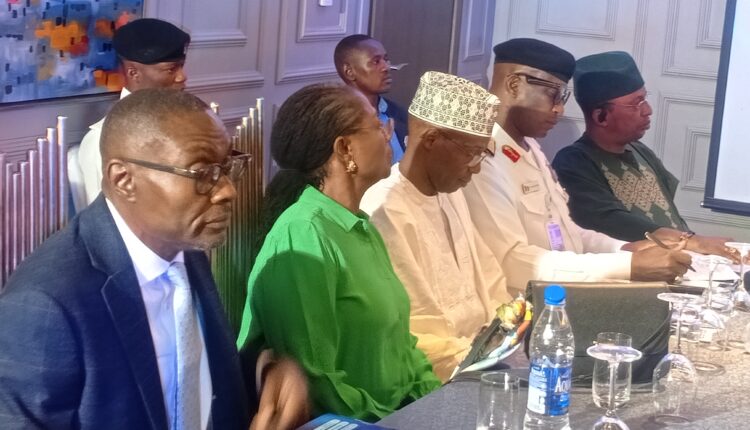At the Global Transport Policy (GTP) Intermodal Transport System Annual Roundtable held in Lagos, transport experts and stakeholders called for a yearly investment of $3 billion to develop Nigeria’s transportation infrastructure, describing it as vital for economic growth, job creation, and national competitiveness.
Dr. Oluwasegun Musa, Chairman and Chief Consultant of GTP and CEO of Widescope International Logistics Limited, emphasized that prioritizing sustainable transport infrastructure is essential to meeting Nigeria’s rising demand and ensuring long-term development. He stated that significant investment would lead to greater sector efficiency, reduced logistics costs, and improved global competitiveness.


Musa, who also serves as Deputy President of the National Association of Government Approved Freight Forwarders (NAGAFF), stressed the importance of multimodal and integrated transport systems, which combine road, rail, and waterways into a unified network.
“Integrating different modes of transportation will create a seamless system that boosts productivity and lowers costs,” he said.
He urged the Federal Government to show strong political will in tackling the sector’s challenges, citing World Bank data showing that integrated systems can reduce transport costs by up to 30%. Musa also highlighted public-private partnerships (PPPs) as a strategic path to achieving Nigeria’s transport goals.
In his keynote speech, Professor Aremu Jonathan, former Acting Vice Chancellor of Covenant University, criticized Nigeria’s current transport policies for lacking a comprehensive and strategic vision. He noted that many developed countries are now adopting multimodal transport contracts, which are more efficient and flexible than traditional intermodal models.


Professor Jonathan added that embracing such systems would help Nigeria maximize the African Continental Free Trade Agreement (AfCFTA) by enabling smoother movement of goods and people across borders.
Speaking on planning and vision, Dr. Fredrick Oladeinde, former Lagos State Commissioner for Transportation and Principal Consultant at Fredrick Oladeinde Consultancy Services Limited, emphasized that visionary planning, not just technology, is the cornerstone of a modern transport system. He advocated for consistent investment and smart planning to support the needs of Nigeria’s rapidly urbanizing population.
Dr. Oladeinde pointed out that 26 Nigerian states already have access to water transport, and encouraged the integration of the informal transport sector into multimodal systems to reduce urban congestion and operational costs.

Themed “Sustainable Transport System: Global Best Practices and Lessons for Nigeria,” the 2025 GTP Roundtable brought together policymakers, academics, and industry stakeholders to chart a path toward a more efficient and sustainable transport infrastructure in Nigeria.
The event concluded with a unified call for bold investments, collaborative governance, and the adoption of global best practices to unlock Nigeria’s transport potential and improve quality of life for millions.




